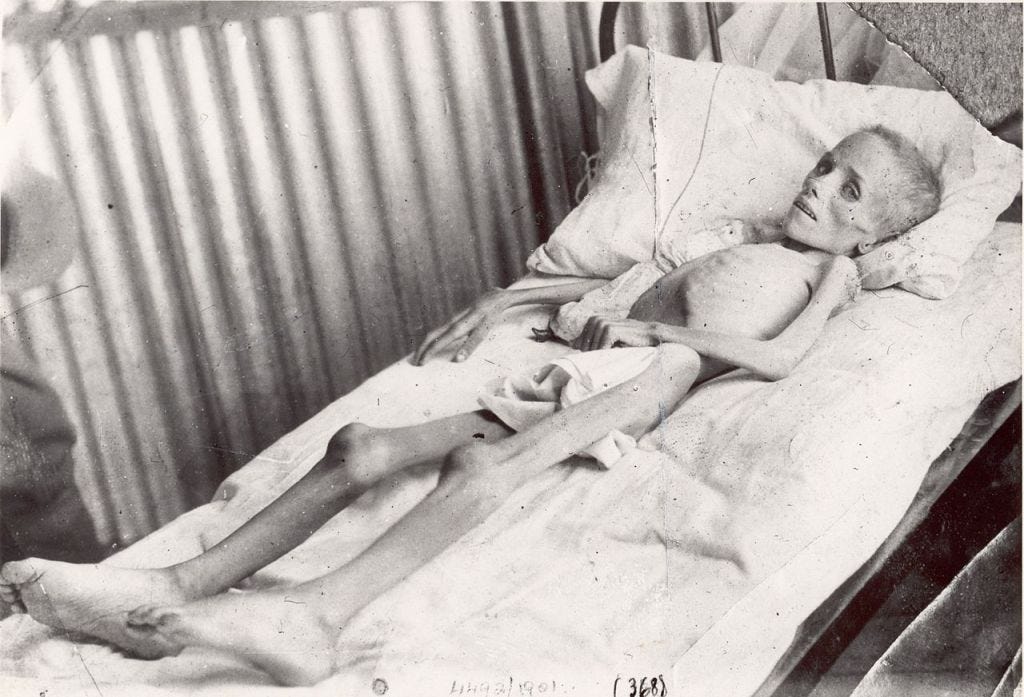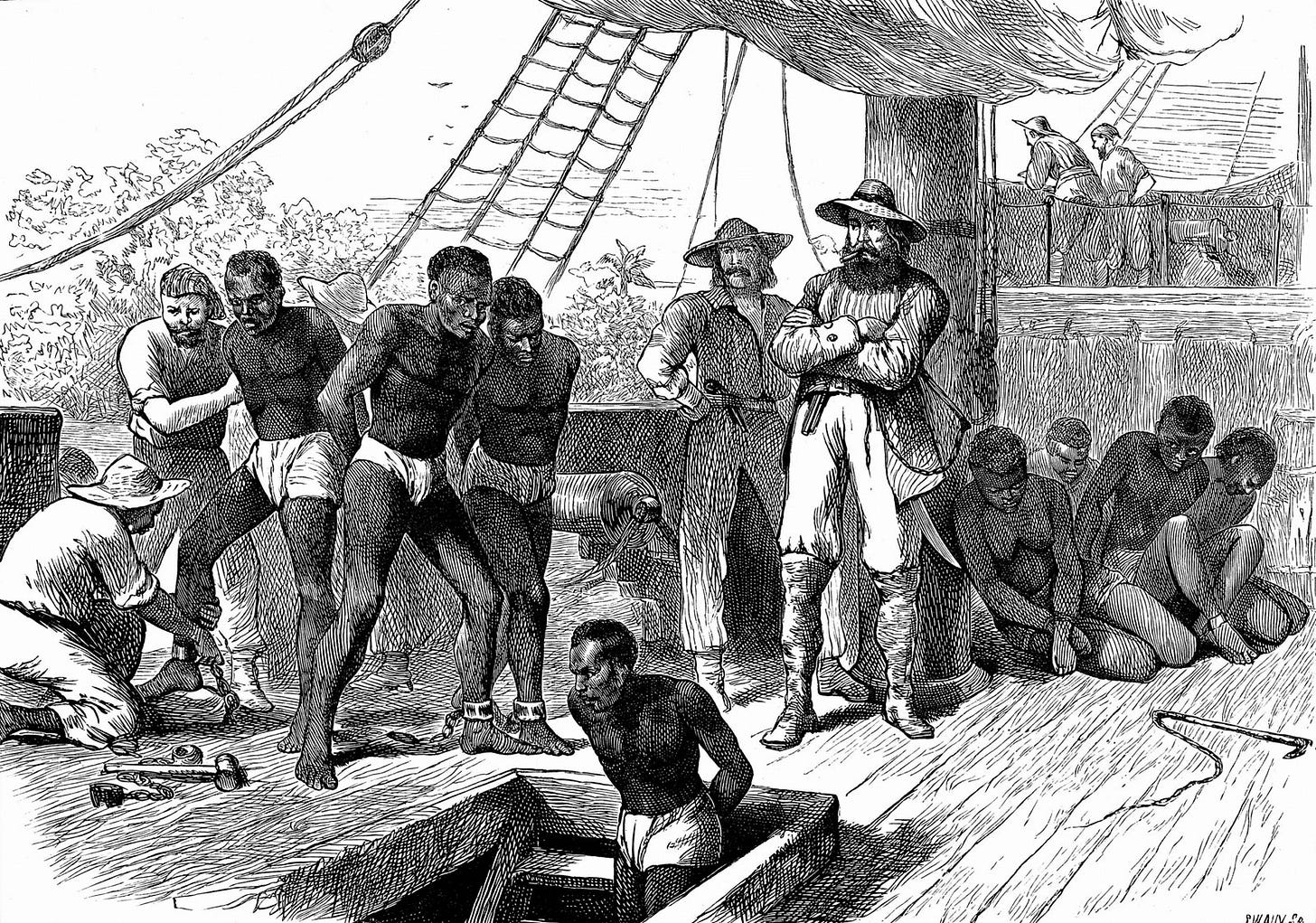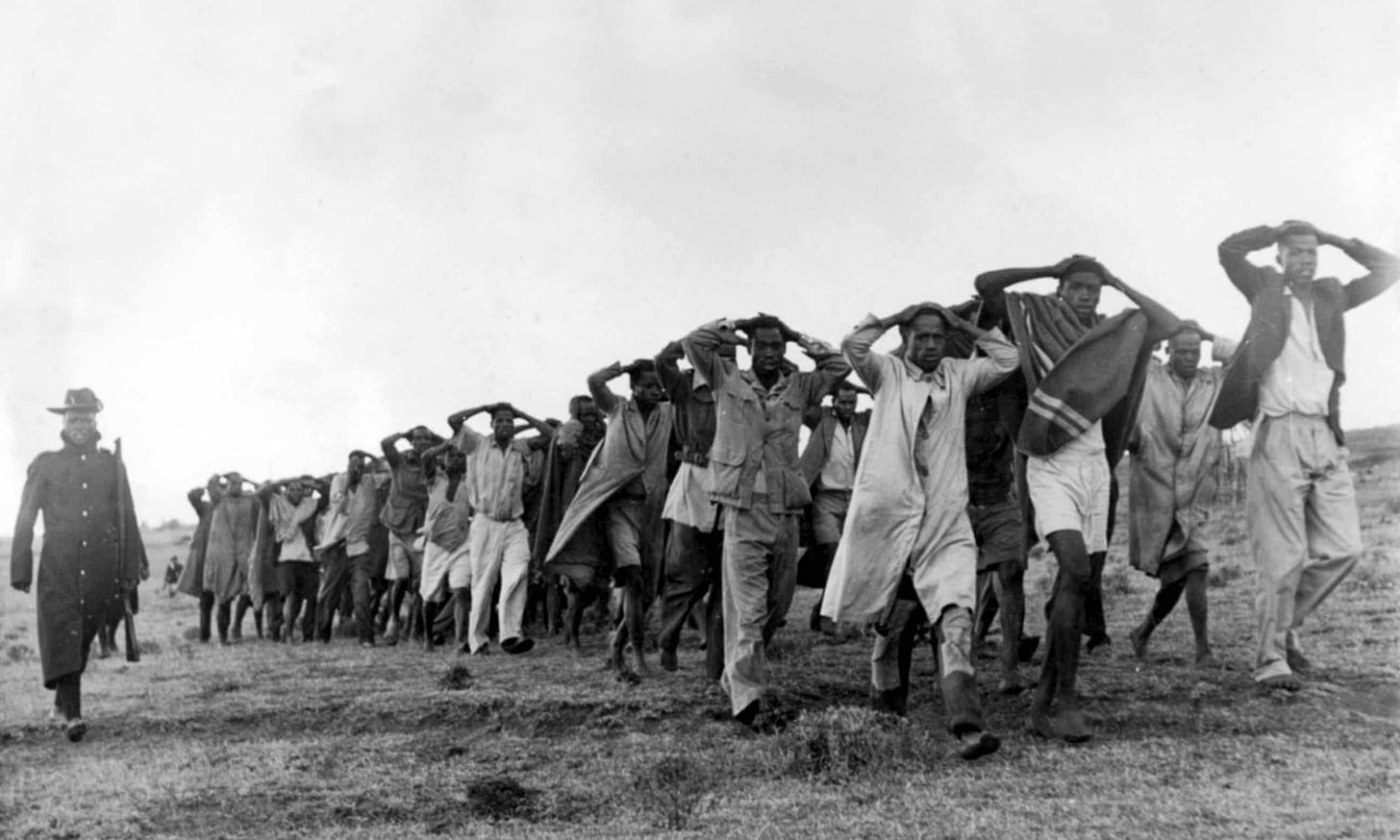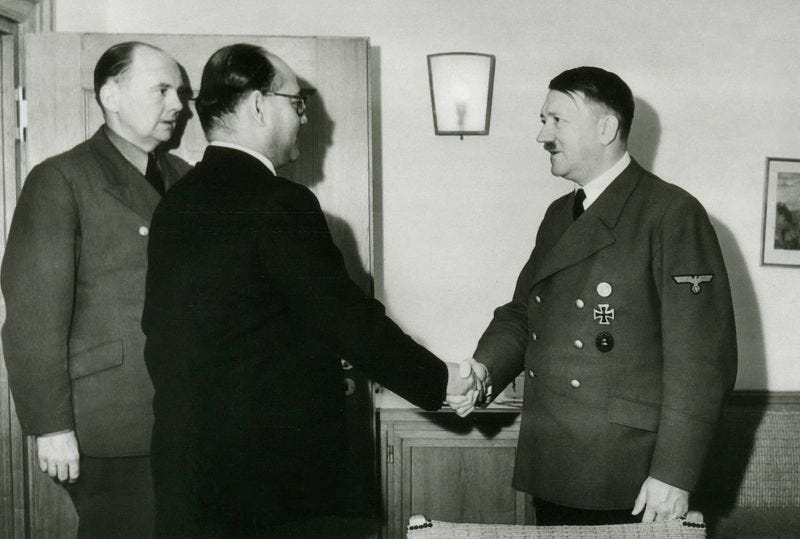Netaji’s Statue: Why it’s time to get over the romanticisation of the British Empire vis-a-vis the Third Reich
That the current regime in India is Hindu fascist is well-known, but it went even further in its craven fascism recently, announcing plans to install the statue of a well-known Nazi ally at India Gate – Subhash Chandra Bose. Quite naturally, the harbingers of truth took umbrage.
South Asia specialist Myra Macdonald wrote that despite India’s ‘ambivalent attitude to SC Bose’, this was going ‘too far, dangerously so’. Financial Times Associate Editor and former India bureau chief Edward Luce called it the latest ‘exhibit of Modi’s fascist ideology’. Patanjali ‘Tunku’ Varadarajan was aghast that the statue of a man who was ‘pals with Hitler’ was going to ‘sully’ India Gate.
The audacity! How dare these Indians using their own money decide whose statue to install in their capital. Just imagine the impudence – India putting up a statue of an Indian in the same place that was graced by his highness, the gracious George V. Will you not come back and colonise us Queen Elizabeth and rid us of these modern-day Cromwells?
Not accounting for Poe’s Law (I didn’t see a smiley or winky face), the aforementioned reactions are in line with the tosh that passes off as serious analytical pieces about India. As we speak, somewhere a Guardian, FT, NYT or Washington Post columnist is furiously working on a long-winded opinion piece explaining how a “Hindu nationalist government whose ideological forefathers venerated Hitler just installed a giant statue of a man who allied with him”.
While it’s true that there are those among the current dispensation’s forefathers that did venerate Hitler, Subhash Chandra Bose’s legacy goes far beyond those who support BJP. It’s a different matter that the BJP probably lacks a suitable pan-national hero and has to retrofit icons from the Congress pantheon like Bose or Patel to replace the Nehru-Gandhi legacy.
Bose is unequivocally loved by everyone across the political spectrum barring two minor groups – those extremely close to Nehru (who used the Intelligence Bureau to spy on Bose’s family for two decades after Independence) and the descendants of those who lived in Andaman and Nicobar Islands and bore the brunt of the Japanese occupation.
However, to reduce Netaji to a ‘Nazi collaborator’ is like saying Winston Churchill was an intermittent fasting enthusiast. Lest we forget, the Empire that Bose sought to overthrow was the upholder of a bloodstained legacy that stretches from Africa to Asia to North America, having started as a venture for a few corrupt avaricious businessmen seeking to make a quick buck before graduating to the forceful sale of opium and eventually transforming into the most genocidal empire that has existed in the history of mankind. Yeah, let’s start using the G-word when it actually fits.
There’s absolutely no atrocity that was committed during the regime of the Third Reich that wasn’t also carried out by officers of the British Empire. In fact, leaders of the the British Empire can probably add a few atrocities missing from Hitler’s bucket list.
Shooting down innocent and unarmed civilians in cold blood? Check.
Gassing tribes with chemical weapons? Check.
Putting kids, including women and children in concentration camps which killed thousands? Check.
Taking over 3 million slaves in ships in extreme inhuman conditions from Africa to the Caribbean, and in the process killing scores? Check.
Hiding the deaths of thousands when imprisoning Kenyans in a British gulag and then passing it off as a civilising mission? Check.
Lizzie van Zyl, a Boer child, visited by Emily Hobhouse in a British concentration camp (Wikipedia)
Captive Africans being transferred to ships along the Slave Coast for the transatlantic slave trade, c. 1880. (Getty Images)
Mau Mau suspects being led away for questioning by police (Getty Images)
Indeed, Hitler can be classified as a veritable humanist if one were to confirm the total extent of the atrocities carried out under the British regime everywhere. After all, the horrific brutalities are not diminished simply because they were committed by men speaking in clipped Queen’s.
The only difference is that Hitler’s chosen victims comprised more of white Europeans whose lives have historically been valued more. When officials went out of their way to help Indians during the famine, they were castigated for their ‘extravagance’ and was slammed by The Economist for “allowing lazy Indians to think it’s the duty of the Government to keep them alive”.
There will be no Nuremberg trials for Britain’s crimes, because as one adroit Twitter user pointed out: “The difference between Nazism and the British Empire is that Nazism was destroyed before it could get an image makeover.”

While Empire nostalgia remains rife in Britain – not that one expects better from people who pay to support the lifestyle of an incestuous Germanic family – it is also prevalent among their formerly colonised ‘subjects’ till date. While they might no longer be physically ruled by the Empire, their minds remain plugged into the colonised simulacrum and abide by its internal rules.
Hitler did terrible things, but his treatment of Jews is a faraway crime which would bother Europeans more than Indians. On the other hand, the atrocities of the British Empire are far more real for us. Of course, you will have the odd idiot who will know more about the Holocaust was somehow worse than the Bengal Famine or the Jallianwala Bagh massacre, just like the Indian chap who takes a knee for Black Lives Matter to protest police violence in America.
There’s another reason Bose’s legacy was played down in India over the ages, beyond personal scruples with Nehru and Gandhi. Accepting Bose’s legacy would mean accepting an alternative to the Quixotic myth that India’s independence was thanks to Gandhian ahimsa.
As geo-strategist Brahma Chelley wrote in 2019: “Had the post-1947 India been proactive and forward-looking in securing its frontiers, it could have averted both the Kashmir and Himalayan border problems. China was in deep turmoil until October 1949, and India had ample time and space to assert control over the Himalayan borders. But India’s pernicious founding myth gave rise to a pacifist country that believed it could get peace merely by seeking peace, instead of building the capability to defend peace.”
This fantastical bit of magic realism became part of the national pathos and shaped India’s foreign policy in the early years, a whimsical NAM (Non-Aligned Movement) narrative that we are still paying for in very tangible terms. In fact, even Ambedkar subscribed to this view which was confirmed by Richard Atlee.
Bose’s INA destroyed the long-held British belief that the armed forces would always bow to their colonial overlords. The Royal Naval Mutiny of 1946 further drove this point home.
The truth is that SC Bose is a complex individual, a product of his time who used every resource he could get his hands on to fight a hegemonic Empire which had enslaved us, and millions like us across the globe. He was a product of his time, a crypto-fascist authoritarian who batted for dictatorship for the first 20 years, who had Atarurk-like ideas of secularism and was also a left-leaning socialist who spoke against communalism. What was never in doubt throughout was his desire to uproot the British and send them packing. Complicated as it may be for foreign correspondents to grasp, Bose’s legacy isn’t ambivalent. Not for Indians.
PS – I am no fan of my taxpayer’s money being used to build giant statues, but I hope for my the sake of my liberal brethren that the statue doesn’t look more like Bumbada. On the other hand, would Netaji have been a BJP member if he was alive today? Maybe an NDA ally. Definitely an NDA ally.










